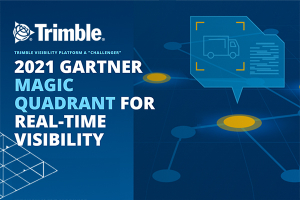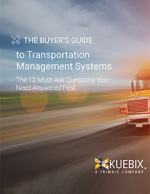How Connected Platforms will Transform Transportation Management Systems
This paper details how network-based transportation management systems, and the network effects enabled by a platform that connects all logistics stakeholders, are the foundation for implementing a better and smarter transportation management transformation.
Network-Based Transportation Management System
The COVID-19 crisis has made it painfully clear that companies cannot continue to manage their supply chains like it’s still 1999.
This is particularly true in transportation management, where significant waste exists in the industry, adding costs and inefficiencies for shippers, carriers, and brokers.
Simply put, the time has come to find a better and smarter way.
Network-based transportation management systems, and the network effects enabled by a platform that connects all logistics stakeholders, are the foundation for this required transformation.
They can eliminate many of the inefficiencies and waste in the industry, and enable smarter and more synchronized processes, by breaking down the data and workflow silos between shippers, carriers, and brokers.
Among other benefits, this results in;
- smarter and faster matching of loads with capacity;
- greater opportunities for collaborative shipping and continuous moves;
- a reduction in truck detention fees; and
- the ability to use network-based data and analytics to identify continuous improvement opportunities and discover new trading partners.
Relationships Matter
Despite all of the advancements in technology and new business models, it is important to remember that transportation is not a commodity. It is a relationship-based business where trusted relationships matter because it impacts customer service and satisfaction, and by extension, a shipper’s brand and reputation. That is why the vast majority of freight is still moved via contracted carriers.
A network-based TMS is as much about growing and strengthening existing partnerships as it is about creating new opportunities to eliminate waste and improve the efficiency of the transportation operations for all industry stakeholders.
What’s Related




Favorites





